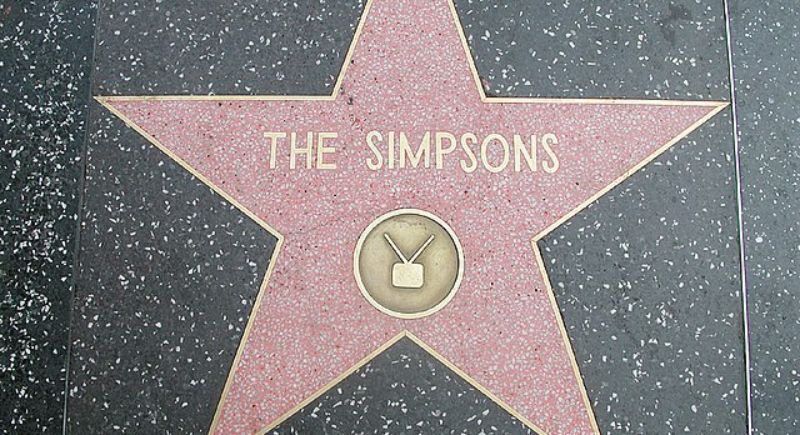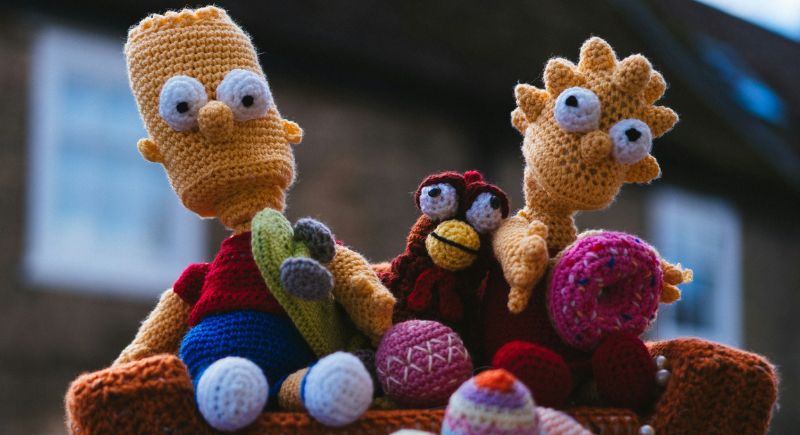Yes, The Simpsons Just Killed Off a Main Character
It’s official, The Simpsons just did something that left fans gasping and scrambling for answers. In the Season 36 finale, the show made a bold, shocking move that no one saw coming. Marge Simpson, the blue-haired matriarch and pillar of the Simpson family, has been “killed off!”
Before you start texting your fellow Simpsons-watchers in a frenzy, let’s clear things up. No, this isn’t a permanent departure. Yes, it’s all part of the show’s unique storytelling approach. And, no, Homer’s not left to raise the kids alone (again).
The Shocking Scene
The episode, titled “Estranger Things”, is a flash-forward to a future where the Simpson family has aged. Even in Springfield, time doesn’t stand still forever. In this timeline, we learn that Marge has passed away. The show gives us a whole scene at her funeral, complete with a tearful Homer standing by her grave. The tombstone, for all you trivia buffs, reads “Beloved wife, mother, pork-chop seasoner.” Classic Simpsons humor, even in a moment of loss.
But there’s a twist. Marge isn’t gone for good. After her brief funeral scene, she’s happily reunited with none other than Ringo Starr in the afterlife. And, in true Marge fashion, she’s still holding onto that quirky, blue-haired charm while chatting about how great it is to marry “different people in Heaven.”
And, well, that’s how the episode ends. Marge gets a brief farewell, but it’s not exactly as dramatic as you’d expect. The show wraps things up with a heartwarming image of her watching over the family from heaven, content with her cosmic match to Ringo.
A New Kind of Simpsons Storytelling?
Now, let’s talk about why The Simpsons chose this route. Is it just another attempt to get people talking? Or is there something deeper going on here?
To start with, this is hardly the first time the show has toyed with alternate realities. Flash-forwards, flashbacks, dream sequences—you name it, The Simpsons has done it. Over 36 seasons, the show has explored “what if” scenarios time and time again. It’s part of what has kept it fresh for so long, and this episode is just another example of the series’ ability to surprise and innovate, even after all these years.
Sure, killing off a major character like Marge may seem like a dramatic move, but it’s also in line with the show’s approach to aging, both of the characters and the show itself. Marge’s death in this episode is more of a speculative look into the future that’s inevitable for everyone, even animated characters. By jumping ahead in time and showing us her passing, the show tried to confront mortality head-on, but with their trademark humor and lightheartedness.
After all, The Simpsons has been on the air for over three decades. The characters may not age, but the world around them sure does. And let’s not forget those iconic voices we’ve all grown up with. Julie Kavner as Marge and Harry Shearer as Ned Flanders, for instance, are getting older too. The show has to reckon with this somehow, and what better way to address the inevitable than through a cheeky, almost whimsical flash-forward to the future?
The Backlash (And Why It’s Kind of a Good Thing)

Image via Wikipedia/Witchblue
Naturally, The Simpsons fandom wasn’t exactly thrilled about Marge’s “death.” As with anything unexpected in pop culture, some fans took to social media to voice their displeasure while questioning the need for such a dramatic plot twist.
This backlash isn’t necessarily a bad sign for the show. In fact, The Simpsons executive producer Matt Selman addressed the controversy with a pretty refreshing take. In an interview, he flat-out called the complaints “ridiculous.” This is The Simpsons we’re talking about, a show that has long been about alternate realities and what-ifs. Marge’s death is just a speculative storyline for a future that may never come.
Matt also added that “The Simpsons doesn’t even have canon,” which, for those unfamiliar with TV lingo, means the show doesn’t follow a strict continuity. Every episode is a new experiment in storytelling, and it’s been that way from the very start. So, in his words, “Marge will probably never be dead ever again.”
And you know what? That’s kind of what makes the show so endearing. Even after all these years, they’re not afraid to take risks and do something unexpected in the face of a fanbase that’s deeply invested in these characters.
What Does This Mean for The Simpsons?

Image via Unsplash/Phil Hearing
So, now that we’ve processed the shock of Marge’s “death,” what’s next for The Simpsons? Is the show heading toward a more serious tone, or is this just another lighthearted experiment?
Probably a bit of both.
The Simpsons is no stranger to serious moments amid all the jokes, and this episode proves that the show can explore weighty themes like loss without losing its comedic edge. The fact that Marge’s “death” was handled with humor and a sense of closure shows that the show put some thought into it.
This episode also signals a shift in how The Simpsons will address its own legacy. The show has been a part of pop culture for so long that it’s inevitable that it will eventually have to face the question of how to continue. But instead of treating that question as a threat, they have embraced it with humor and creativity.